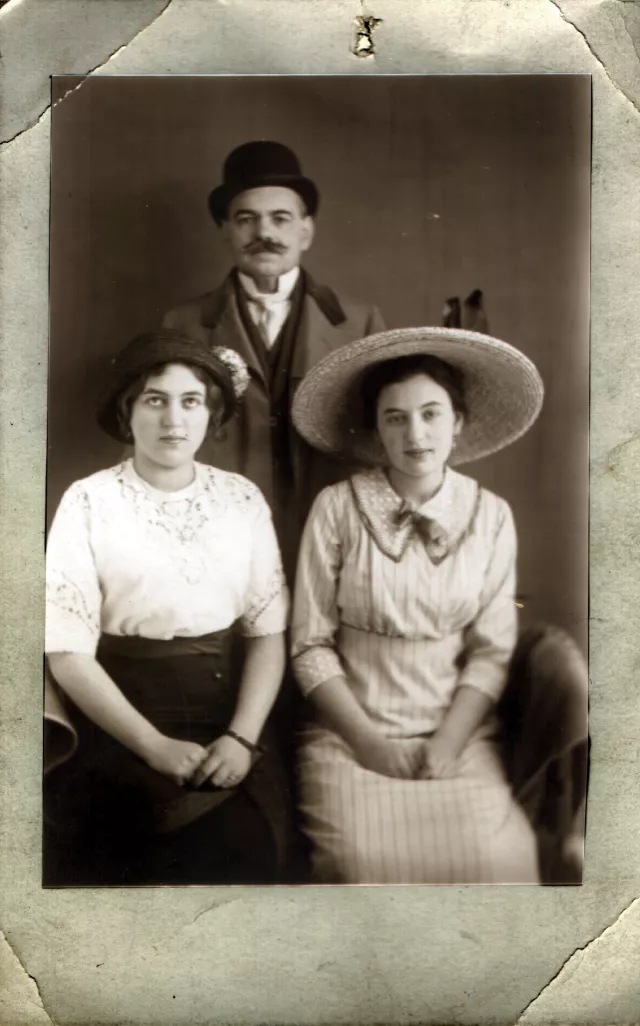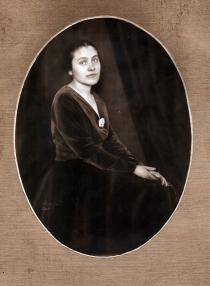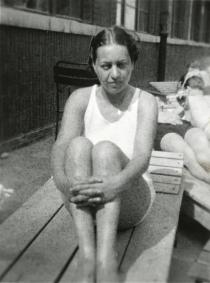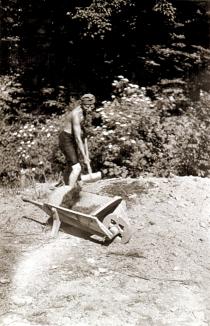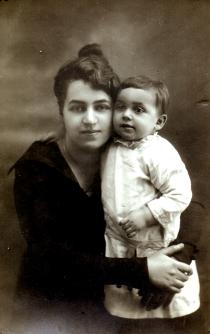Kati Andai's mother Margit Brichta, her sister Bella Levai and their father
This is my mother (on the left) and her sister Bella and their father. They had this photo made to send it to their sister Olga who was at university in Budapest. You see, my grandfather wrote [on the back of the postcard] in German to Olga. He always corresponded in German with his daughters.
Olga was older than my mother by three or four years. They attended university in Budapest which was a big deal at that time. She studied to be a teacher - I don't know what kind of teacher - and she told her parents that she didn't want to occupy a teacher's post because she had fallen in love with a student, and wanted to marry him. The problem was that the person in question was Christian and the son of a jailer. Well, it caused a lot of trouble, but she got married to him, and he got a job in Resicabanya [today: Resita], close to Temesvar [today: Timisoara, a town in Transylvania, Romania]. There he got a job in an iron factory and they moved there.
Her sister Isabella, Bella was sent to university in Budapest, too. She hated university as well. Bella was a very strange woman. She was married off to a bartender. She wasn't so young any more, though she was very pretty, and she was happy that she got married. Her husband was a Jew from the country who had a high school education in commerce; he had a bar at the corner of Thokoly Road and Muranyi Street. They had a good financial situation. Bella didn't work, as she didn't like to be among people. She went to the cinema and read. She couldn't even cook, her mother-in-law cooked while she was alive. They never had any children. They both survived the war. Her husband wasn't taken to forced labor service, but he was a member of the skeleton staff, and they kept his rank of officer, because in the Hungarian Soviet Republic of 1919 he had gained distinctions. I didn't like them because they made us feel acutely that they were in a much better financial situation than we were.
